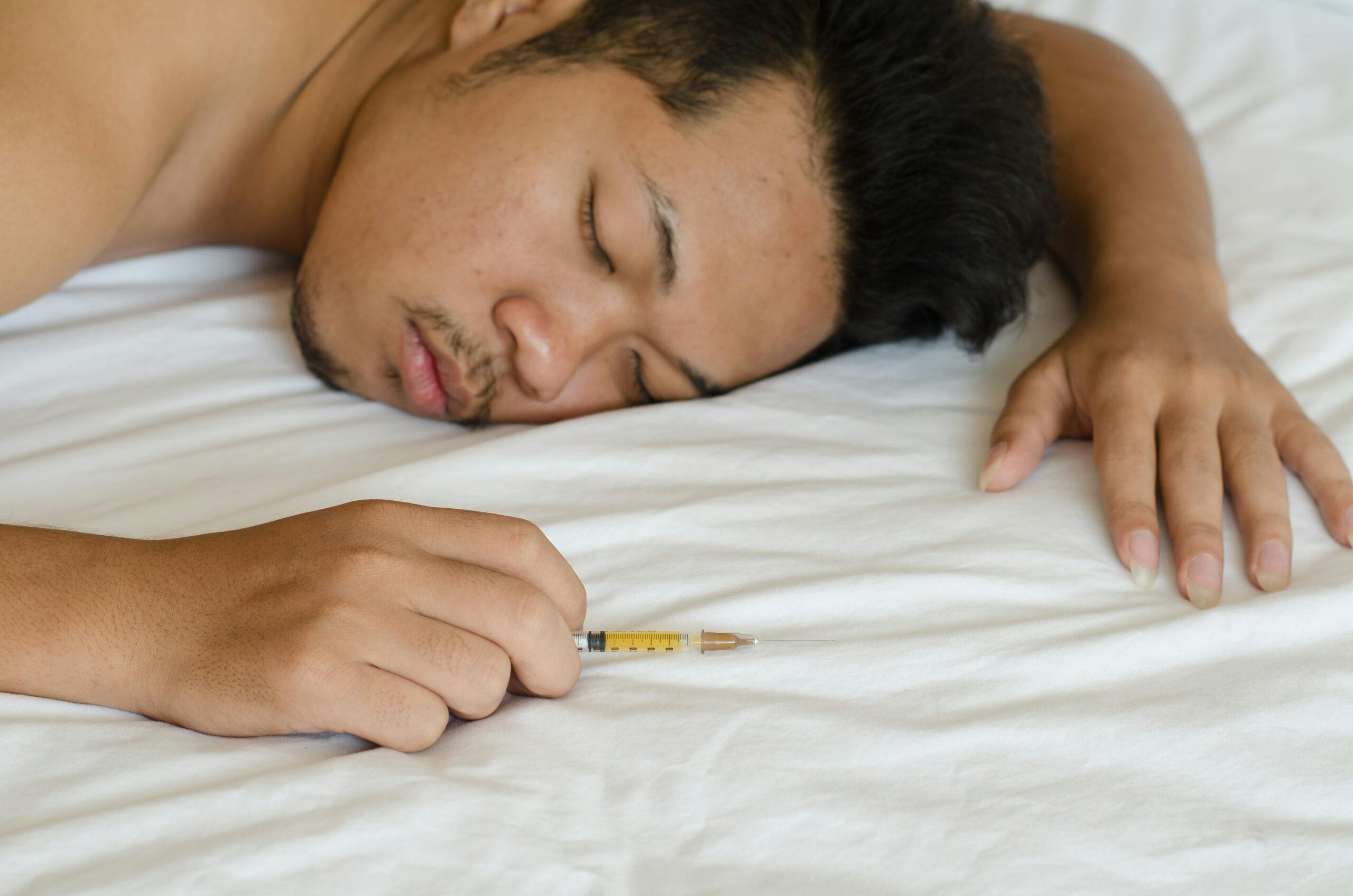Heroin Sleep Effects
Heroin is an opioid made using morphine, a substance found within opium poppy plants that grow in certain parts of the world. The drug comes in many forms, including powder and a sticky substance known as black tar. Heroin affects the body rapidly, binding to opioidreceptors that control sensations of pleasure and pain. The effects of heroin can also lead to sleep-related side effects, such as insomnia.
Are you or a loved one facing an addiction? Get in touch with the caring team at Zinnia Health by calling our 24/7 helpline at (855) 430-9439.

Why Does Heroin Affect Your Sleep?
Heroin is a Schedule I substance which means it is not prescribed for any condition, but brand-name drugs like OxyContin® and Vicodin® act similarly to heroin and are commonly prescribed for treating pain. When taking heroin or similar opioid drugs, a person will experience rapid pain relief — both physically and mentally.
This sensation happens because heroin binds to the opioid receptors, inducing the release of dopamine, a chemical associated with reward, pleasure, and motivation.
Dopamine plays a critical role in balancing the central nervous system and correlates with feelings of elation and happiness. It’s why heroin and other opioids are addicting, as they activate the brain’s reward center, which reinforces the act of taking the drug.
However, when heroin causes the levels of chemicals like dopamine to increase, it leads to an imbalance of other important chemicals, such as serotonin.
When heroin is taken often and/or in large doses, the high levels of dopamine that result inhibit the release of serotonin. Since serotonin is essential for calming the body and managing circadian rhythms (also known as the sleep/wake cycle), heroin use can directly impact sleep.
What Sleeping Problems Can Heroin Cause?
Heroin’s ability to increase dopamine levels and decrease serotonin levels in the body means that individuals may experience changes in their sleeping patterns. If you take heroin, you’ll find it hard to get a good night’s sleep since less serotonin means your body won’t be as relaxed.
While poor sleep quality is the first sleep-related symptom you’ll likely notice when taking heroin, it won’t be the last. Opioids are associated with reduced sleep efficiency because they can block your body from entering the deep stage of sleep, known as REM sleep. This effect means your body will spend more time in the light phases of sleep.
When your body isn’t able to spend enough time in the deep, restorative phases of sleep, you will experience drowsiness and sleepiness throughout the day.
This effect happens because you won’t sleep as efficiently as your body requires, even if you get seven to eight hours of sleep the CDC recommends. As a result, you may sleep more when taking heroin and still feel poorly rested.
Some sleeping problems that can result from using drugs like heroin include:
- Restless sleep, characterized by tossing and turning and sporadic waking
- Opioid-induced insomnia that makes it hard to fall asleep
- Sleep deprivation as a result of your inability to sleep
The sleep-related side effects of heroin addiction are further compounded by the other physical and mental health effects of drug abuse, which can become dangerous if not managed properly.
Sleeping problems are just one sign of substance use disorder. If you’re looking for more information on addiction and recovery, Zinnia Health can help. Call us at (855) 430-9439 for more details.
Are Sleeping Problems Caused by Heroin Dangerous?
Heroin-induced insomnia and the resulting sleep deprivation you will experience from lack of quality sleep can negatively impact your health. In the short term, you’ll likely find that poor sleep affects your alertness and cognitive function.
It can also make you more irritable and worsen your anxiety, depression, or any mental health conditions. In the long term, the effects of heroin use are far more dangerous.
Insomnia creates an unpleasant cycle of being sleep deprived and tired throughout the day while struggling to get a good night’s sleep at bedtime. Unfortunately, not getting enough quality sleep will impact both your physical and mental health by:
- Increasing your risk of type 2 diabetes, heart disease, heart attack, and stroke
- Contributing to conditions like stress and anxiety, which are often amplified by drug use and addiction
- Raising your risk factor of developing sleep disorders, including sleep apnea, which can become fatal if not treated
Heroin addiction is hazardous in itself, but the sleeping problems it can cause further compound the risks. For instance, opioid use leads to respiratory depression, causing slower and shallower breathing.
Since opioid use can heighten the risk of sleep apnea, breathing that starts and stops throughout the night, heroin use can contribute to oxygen deprivation, organ damage, and organ failure.
Coping With Sleeping Problems Caused by Heroin
If you’re trying to cope with the sleeping problems associated with substance abuse, it’s important to realize that the only way to stop them completely is to quit the drug. However, heroin withdrawal is an unpleasant process that can be risky.
When not managed properly, withdrawal symptoms can send a person into relapse and increase the chance of opioid overdose.
The sleep-related side effects of heroin addiction are a small part of the picture. Dealing with the cravings and other side effects of substance use disorder requires personalized, dedicated care. If you’re trying to cope, the next step is to reach out to a treatment center that can safely help you through the issues of insomnia, sleep deprivation, and any disorders you’re experiencing.
How Zinnia Health Can Help
Heroin use is known to cause sleeping problems, but you don’t have to face them alone. Restoring good sleep and quality of life is possible with the right treatment program. If you have questions, Zinnia Health can walk you through your options.
Just contact our team at (855) 430-9439 for help taking the next step on your path to recovery.
Related Articles

